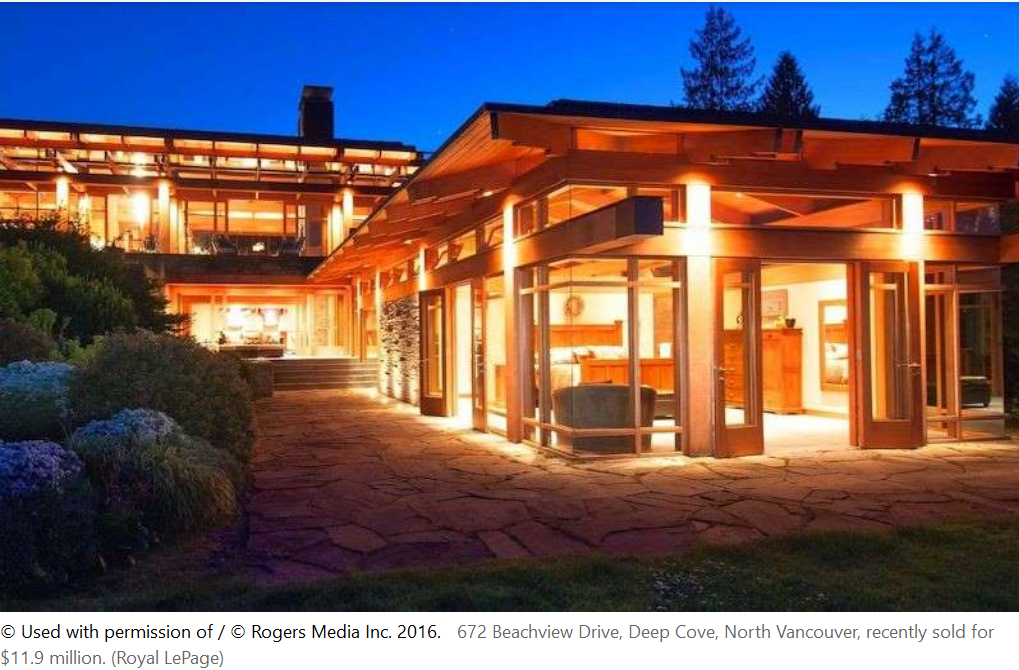The Canadian real estate is an attractive market for foreign buyers these days.
But for all of the attention and debate on the matter, we understand shockingly little about just how much of the market is foreign-owned and what affect that has, particularly on house prices.
Royal LePage, Canada’s largest real estate company, tried to demystify some questions around foreign real estate ownership by surveying its market advisors about their experiences with luxury housing sales. But the results, published on Thursday, raise more questions than they answer.
Perhaps the most intriguing, and perplexing, stat in the report is that one in four real estate advisors reported that foreign buyers comprised at least 25% of the luxury housing market. “Personally, I was surprised that number was as high as it was on a national basis,” says Phil Soper, president and CEO of Royal LePage. Certainly, 25% is much higher than CMHC’s estimates for the condo market released in April, which pegged foreign ownership at around 7% for Toronto condos built since 2010, and 6% for new condos in Vancouver.
While 25% foreign ownership in the luxury market may seem like a high estimate, it’s important to note that 75% of respondents actually reported the number being lower. Of course, this stat represent the aggregate responses from advisors near Toronto, Vancouver, Montreal, and Calgary—all regions with markedly different real estate sectors, luxury and otherwise.
However, looking at each city separately offers little more insight into the foreign ownership situation. In the Vancouver area, for example, a third of agents said non-Canadians owned at least 30% of luxury homes. Near Toronto, it’s even more debatable with 29% of agents reporting at least 20% of luxury properties being foreign-owned, while 39% said foreign-ownership is below 5%.
Soper points out that part of the variation comes from differences within regional luxury markets, particularly in the Greater Toronto Area where nearby cities like Markham and Brampton, for example, may attract different buyers than Toronto.
While the proportion of foreign ownership in Canadian markets are clearly up for debate, advisors can generally agree that more and more non-Canadians are buying luxury homes in Canada, particularly in the Vancouver area where 79% of respondents said they’ve seen more foreign sales since January 2015. Canada-wide, 67% said property sales to foreign buyers increased in the last year (a number that’s largely diminished because of a decrease in foreign buying in Calgary).
According to Soper, there are two main factors attracting foreign buyers to the Canadian luxury market and real estate market in general. The low Canadian dollar is one driver (as Soper points out, “luxury homes are cheaper now than the were three years ago”). But more important than the relatively low sticker prices is what Soper calls “Brand Canada,” referring to our reputation as a tolerant, open country. “It’s like investing in an ethical company,” he says. “You feel more comfortable if the CEO’s not a wing nut. And I think that’s helping Canada and Canadian real estate.”
But not everyone agrees that foreign property ownership is a good thing for Canadians, and critics argue that wealthy non-Canadians are driving locals out of the market in cities like Toronto and Vancouver.
This hunch prompted the federal government in March to earmark $500,000 for Statistics Canada to study the extent of foreign real estate purchasing and what effect it has on the market. And on Tuesday, the B.C. government announced that starting on June 10, non-Canadian homebuyers will have to disclose their citizenship on transfer tax forms. The province has also promised to close loopholes that facilitate “shadow flipping”—a dubious practice (thought to inflate the market) whereby brokers resell properties several times before the deal is closed to capitalize on multiple commission payouts.
Although Soper acknowledges that foreign investment in the luxury real estate market may inflate prices in particular neighbourhoods, he believes the effect is “dramatically” overstated. “If you look at the number of foreign investors in real estate and the overall size of the market in Canada, its not big enough to move the needle,” he says.
But just like most of evidence on the topic, that statement, along with the Royal LePage report, is impossible to quantify. “We’re not even close” to having an accurate picture of Canada’s foreign-owned real estate market, Soper agrees. “Certainly before we react in a haphazard way with politically expedient public policy, we need the data, we need to investigate,” he says. “If it takes a couple years, well so be it. Lets take the time to understand. And once we’ve understood, look at it in the context of the overall economy.”


Leave a Reply